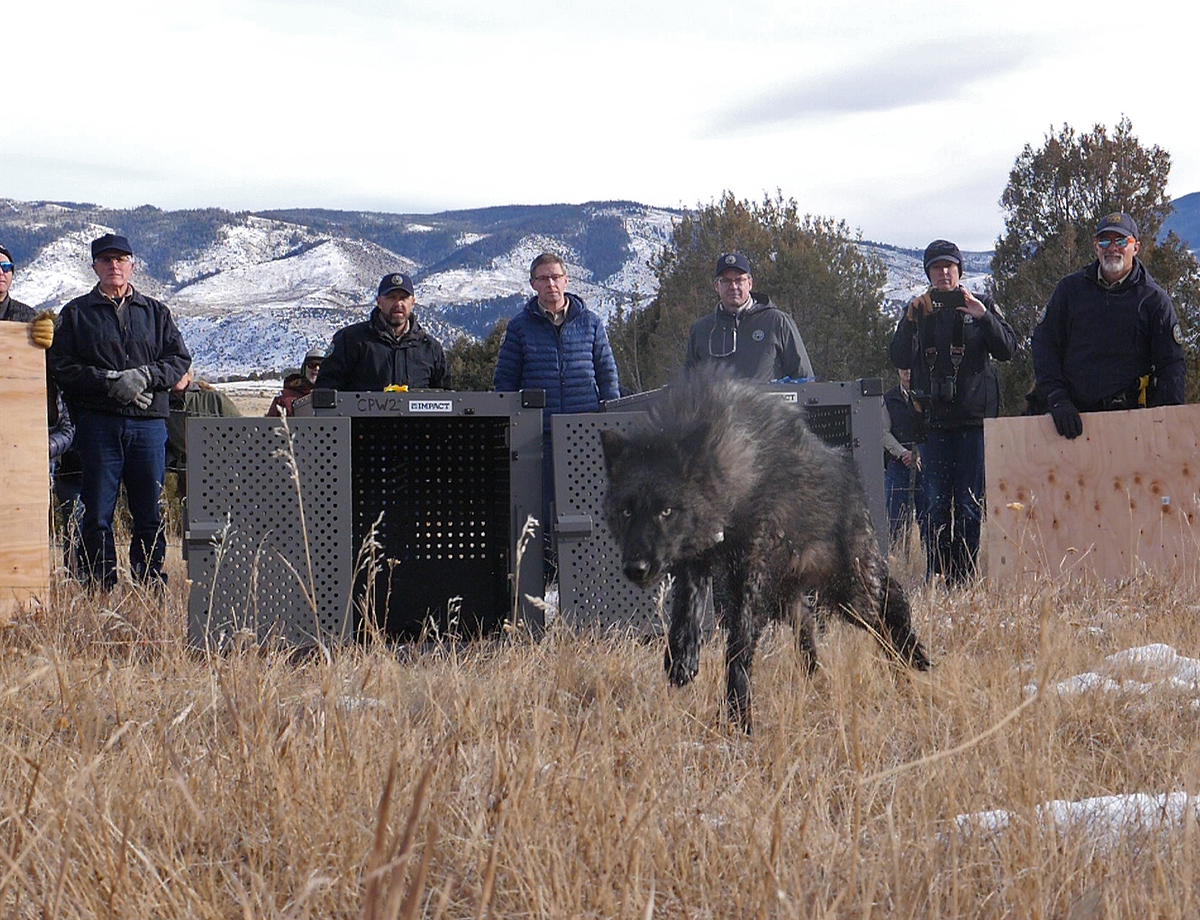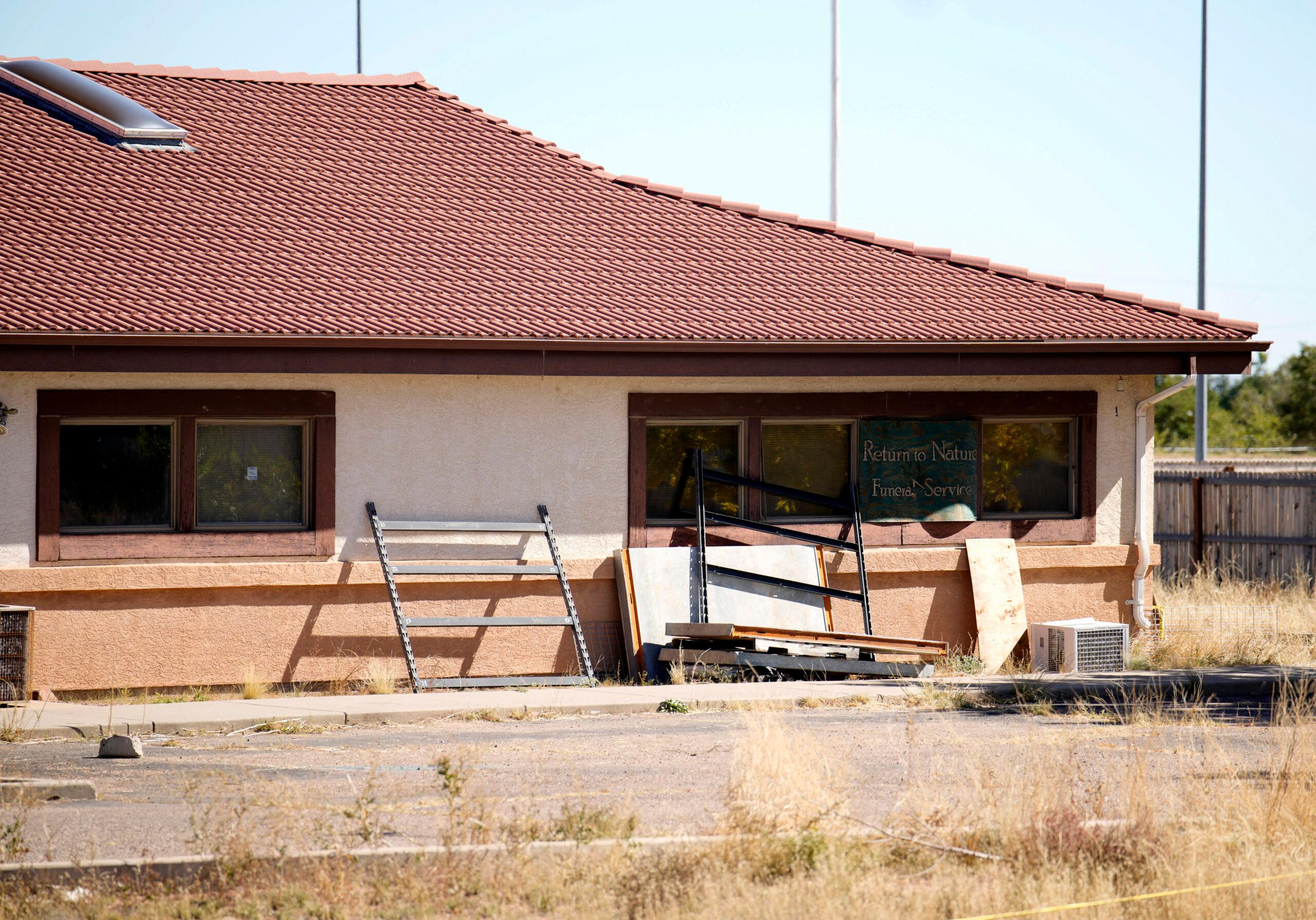
The Colorado Parks and Wildlife Commission voted 10-1 on Wednesday to deny a petition from ranchers seeking to pause the state’s controversial wolf reintroduction program.
The Middle Park Stockgrowers Association — along with 24 other agriculture groups and a political organization supporting Colorado’s Western Slope — submitted the petition last September. It asked wildlife officials to hold off on planned wolf releases until the state fully implements several programs meant to safeguard livestock.
Colorado Parks and Wildlife released an initial batch of 10 wolves in December 2023, meeting a deadline set by a ballot initiative narrowly approved by voters three years earlier. The wildlife agency plans to capture up to 15 additional wolves in British Columbia this winter and release them in Eagle, Pitkin and Garfield counties.
Colorado’s wolf recovery plan calls for wildlife officials to relocate 30 to 50 wolves into the state over three to five years. The goal is to help the predators rebuild a self-sustaining population within Colorado, which hasn’t existed since hunting and trapping decimated the species by the mid-20th Century.
The petition calls for Colorado wildlife officials to take specific steps before proceeding with further reintroductions. One top demand, for example, asks the state to establish a clear definition of “chronic depredation,” which would outline a process for when to kill a wolf that has a habit of preying on livestock.
It also demands that wildlife officials establish programs to support range riders, who would help ranchers by watching for wolves and hazing them away from livestock.
Ahead of the meeting on Wednesday, Colorado Parks and Wildlife Director Jeff Davis sent a letter to the commission, urging the panel to deny the petition since the wildlife agency was already working to address changes requested by the livestock industry.
Colorado wildlife officials outlined those efforts during an hour-long presentation before the commission. The staff explained details about an upcoming state-funded range riding program, which will cover the cost of trained professionals who monitor cattle and sheep herds on horseback or ATVs.
The state plans to hold range riding training programs in January and April, said Dustin Shiflett, the non-lethal conflict-reduction program manager for the Colorado Department of Agriculture. The state’s goal is to contract a pair of range riders for each county where wolves have threatened livestock.
CPW staff also detailed new standards to determine when the state might kill a wolf with a proven habit of feeding on domestic animals and explained a plan to respond to any reports of lost livestock within 24 to 48 hours.
“I know there was a lot of sensitivity around the division’s denial letter,” Davis told the commission. “I’m hoping when emotions come down, people realize they are not denying the conditions, we’re not denying the concerns. Our recommendation is based on addressing those conditions.”
But ranchers remain unsatisfied with the state’s efforts. During two hours of public comment, Tim Ritschard, the president of the Middle Park Stockgrowers Association, said a pause would ensure the state follows through with all of its efforts before it releases any additional wolves.
“How is the state going to find ranger riders who understand livestock and how the ag industry works in just a few short weeks?” Ritschard asked.
Wildlife and animal advocates testified in favor of the commission denying the petition from ranchers. Colorado Parks and Wildlife is currently tracking eight adult wolves and one pup in the wild. The total falls far short of the “self-sustaining population” the state aims to create through its reintroduction program.
If the state halted wolf reintroduction, it could result in wolves once again losing a foothold in Colorado, said Dr. Joanna Lambert, a wolf expert and professor of biology at the University of Colorado Boulder.
“Decades of peer-reviewed science have demonstrated such small populations are highly vulnerable to extinction,” Lambert said.
Before voting to deny the petition, Dallas May, the commission chair, said he sympathizes with ranchers about the challenges wolves present, but said it’s clear the state is working to address their concerns. He added Colorado Parks and Wildlife has a legal duty to follow through with its wolf reintroduction plan.
“This commission has been asked for three years to reinterpret the will of the voters. We can’t do that,” May said.
Marie Haskett, a sportsperson and outfitter from Meeker, was the only commissioner who voted against denying the petition.
The denial comes as opponents of Colorado’s wolf efforts are already shifting tactics to stop the program. Earlier this month, Colorado Advocates for Smart Wolf Policy submitted a draft measure to repeal the original ballot initiative. If approved, voters would decide the future of the program in 2026.









